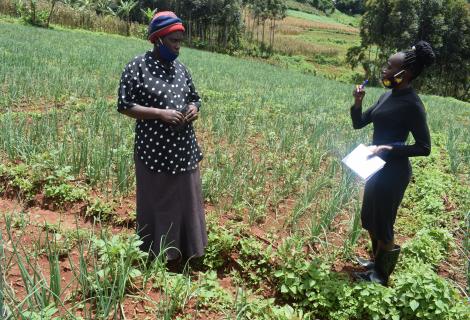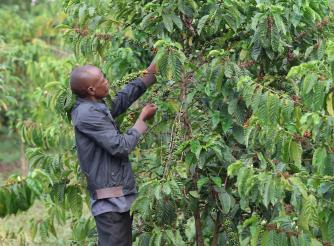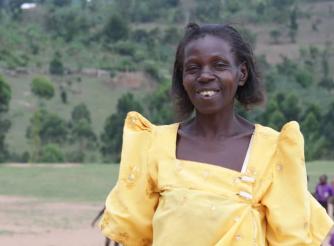COVID19 lockdown Vs Livelihoods.

Elizabeth Chepkorir speaks to ActionAid on her distress as a woman farmer in Kween District during the pandemic induced lockdown .
Elizabeth Chepkorir is a resident of Tambajja Village, Kaseko Sub-County in Kween District and a mother of 7 girls. She has since 2009 engaged in small scale crop farming of Onions, Maize and Tomatoes. Farming is her sole source of livelihood. The proceeds from the sale of her crops have enabled her to pay school fees for her 7 children as well as ensure that there is always food on the table for them.
Elizabeth narrated that following the outbreak of the COVID-19 Pandemic and subsequent lockdown, she underwent psychological, physical and economic distress. This is because she had just finished paying the last instalment of fees for her children who were studying in boarding schools. She had inadequate money left over to look after the children who were all home as a result of the mandatory closure of schools. Some of the proceeds that she hoped to invest into her farming were engulfed in purchase of household necessities and level of productivity as a farmer had gone down.
According to Elizabeth, the major challenges faced as a small-scale rural woman farmer are limited land on which to cultivate, limited capital to purchase seed and herbicides. She explains that if she had a bigger portion of land and more seeds, she would transform into a large-scale commercial farmer because she has the desire to become a large-scale farmer.
It is Elizabeth’s recommendation that the government of Uganda provides free seeds to rural women farmers to enhance their livelihoods.


